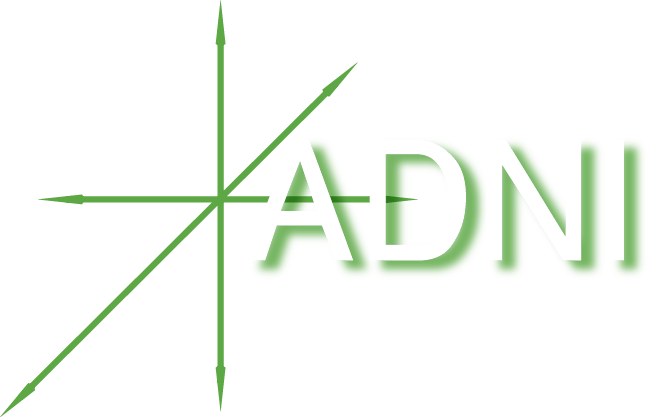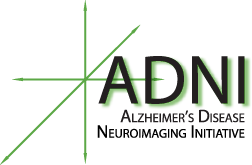ILLUMINA SNP GENOTYPING
Genetic factors play an important role in Alzheimer’s disease. Therefore, a key aim of the ADNI is to provide researchers with the opportunity to combine genetics with imaging and clinical data to help investigate mechanisms of the disease. Genotyping and sequencing data have been generated for ADNI 1, ADNI GO and ADNI 2 subjects and are available to ADNI investigators. A summary of the available data is shown below. Please see the Genetic Data Methods section for more information about the Illumina Genotyping Assays.
Summary of Available Sequencing Data
| ADNI 1 GWAS | ADNI GO/2 GWAS | ADNI WGS | |
|---|---|---|---|
| Genotyping Platform | Illumina Human610-Quad BeadChip | Illumina HumanOmniExpress BeadChip | Illumina Omni 2.5M (WGS Platform) |
| Number of SNPs | 620,901 SNP & CNV Markers |
730,525 SNP & CNV Markers |
#SNPs: ~3.7 million #Indels: ~700,000 #SVs: ~3,500 |
| Patients Diagnosis Groups | NC, MCI, AD | NC, EMCI, MCI, LMCI, AD |
NC, MCI, AD |
| Number of Subjects | 818 | 432 | 818 |
| File format | CSV, PLINK | CSV | VCF (version 4.1) |
Summary of Available Genotyping Data
| Type | Overview | File Format |
|---|---|---|
| APOE Genotyping |
The epsilon 4 allele of APOE is the strongest known genetic risk factor for AD with a two- to three-fold increased risk for AD in people with one epsilon 4 allele rising to about 12-fold in those with two alleles. APOE genotyping was performed at the time of participant enrollment and included in the ADNI database. The two SNPs (rs429358, rs7412) that define the epsilon 2, 3, and 4 alleles, are not on the Human610-Quad BeadChip, and therefore were genotyped using DNA extracted by Cogenics from a 3 mL aliquot of EDTA blood. | CSV |
| TOMM40 PolyT Variant | Genotyping of the risk gene, TOMM40 (translo-case of outer mitochondrial membrane 40), was performed by Polymorphic DNA Technologies. Support for the PolyT assays was generously provided by Allen Roses of Duke University. The ADNI Genetics Core and NCRAD supported DNA preparation. Michael Lutz of Duke University provided bioinformatics expertise. | CSV |
Genome-Wide Association Studies
Genome-wide association studies (GWAS) employ tests of association between markers, called single nucleotide polymorphisms (SNPs), and a phenotype of interest. Findings from case-control GWAS and other types of genetic association studies can provide targets for examining quantitative phenotypes derived from ADNI imaging and other biomarker data sets. GWAS data is available for download to qualified researchers.
For more information, refer to the following paper:
“Alzheimer’s Disease Neuroimaging Initiative biomarkers as quantitative phenotypes: Genetics core aims, progress, and plans.” Saykin AJ, et al. Alzheimers Dement. 2010 May;6(3):265-73. doi: 10.1016/j.jalz.2010.03.013. PMID: 20451875
Whole Genome Sequencing (WGS)
In July 2012, the Brin-Wojcicki Foundation and the Alzheimer’s Association donated funds to support whole genome sequencing (WGS) of 818 ADNI participants (at the time: 128 with AD, 415 with MCI, 267 controls and 8 of uncertain diagnosis). Samples were sent to Illumina, where non-CLIA WGS, as well as Illumina Omni 2.5M genome-wide association study (GWAS) single nucleotide polymorphism (SNP) arrays, were performed on each sample and completed in Spring 2013. Basic quality control checks were then performed and additional checks are continually performed.
WGS SNPs data is currently available to authorized ADNI investigators from within the ADNI Archive. Many users will find this suitable for their needs. Because the actual raw data amounts to over 150TB, it cannot be reasonably distributed over the internet. However, if users wish to re-call variants or realign the reads using other toolkits, they may request access to the entire WGS raw dataset.
Summary of Whole Genome Sequencing Data
| Available Data | Description | File size | File Format | Method of Obtaining |
|---|---|---|---|---|
| WGS (GATK Call) SNV + Indel | These variants were called using Broads Best Practices (BWA & GATK HaplotypeCaller). | 117GB | VCF | Download from ADNI Data Archive. |
| WGS (CASAVA Call) SNV | These variants were called using Illuminas CASAVA software. | 52GB | VCF | Download from ADNI Data Archive. |
| Sequenced alignment data | These are aligned sequencing data. Users can obtain these data to re-call variants or realign the reads if necessary. | Over 150TB | BAM | Send hardware to LONI. |
*There are 809 individuals in the CASAVA VCF files and 808 individuals in the GATK VCF files.
Obtaining WGS Data
WGS SNPs data is available to authorized ADNI investigators from within the ADNI Data Archive. To obtain SNPs data, visit the Access Data page to apply for an account or to login. Once logged in, the data is located on the Download Genetic Data page.
WGS Assembly data amounts to approximately 150TB and therefore cannot be reasonably distributed through the ADNI Data Archive. Investigators seeking to obtain the WGS Assembly data must:
- Maintain an active ADNI data archive account
- Agree to and adhere to the terms of the ADNI Data Use Agreement
- Agree to and adhere to the terms of the ADNI Whole Genome Sequencing Data Use Agreement
Instructions for Requesting WGS Assembly Data
Please follow these steps to acquire WGS Assembly data:
- Download, review and sign the ADNI Whole Genome Sequencing Data Use Agreement
- Email the completed agreement to adni@loni.usc.edu. Enter ADNI WGS Data Request in the subject line. Requests for data will be filled in the order received.
- The Laboratory of Neuro Imaging (LONI) will send an email confirmation with Aspera transfer instructions and login credentials.
For information on the collection, informed consent, sharing, storage, and quality control of WGS data, please refer to Introduction and Procedures for Accessing Data from Whole Genome Sequencing of ADNI.


